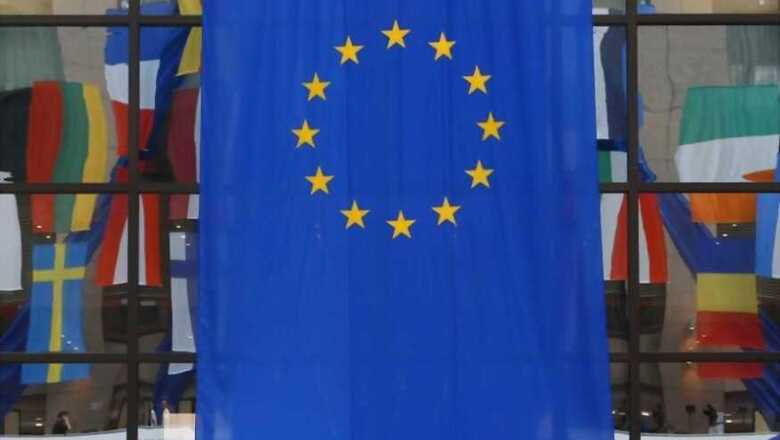
views
Brussels: The EU launched formal steps aimed at sparing European firms fallout from US sanctions on Iran as part of efforts to preserve the nuclear deal with Tehran.
The move to invoke the "blocking statute" had received the all-clear at a meeting of European Union leaders in Sofia on Thursday as the transatlantic rift deepened.
The European Commission, the EU executive, said Friday it "launched the formal process to activate the blocking statute by updating the list of US sanctions on Iran falling within its scope." US President Donald Trump last week controversially pulled Washington out of the 2015 international deal with Iran that placed limits on its nuclear programme in return for easing economic sanctions.
The "blocking statute," which EU member states and the European Parliament must still endorse, is aimed at easing the fears of European companies that invested in Iran after the deal.
"The blocking statute forbids EU companies from complying with the extraterritorial effects of US sanctions, allows companies to recover damages arising from such sanctions from the person causing them, and nullifies the effect in the EU of any foreign court judgements based on them," the commission said.
The commission said it hopes to have the measure in force before August 6 when the first batch of US sanctions take effect.
The commission also launched "the formal process to remove obstacles for the European Investment Bank (EIB) to decide under the EU budget guarantee to finance activities outside the European Union, in Iran," the executive said.
"This will allow the EIB to support EU investment in Iran," it added, noting the measure could help small and medium-sized companies.
The "blocking statute" is a 1996 regulation originally created to get around Washington's trade embargo on Cuba, which prohibits EU companies and courts from complying with specific foreign sanction laws, and says no foreign court judgments based on these laws have any effect in the European Union.
However, the Cuba row was settled politically, so the blocking regulation's effectiveness was never put to the test, and its value may lie more in becoming a bargaining chip with Washington.

















Comments
0 comment